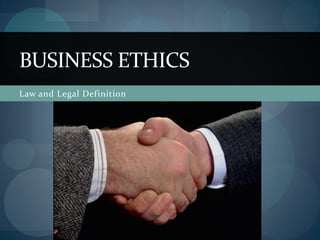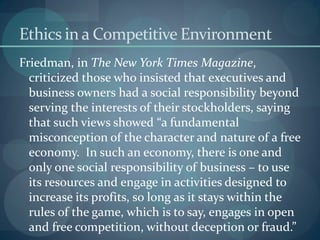Business ethics has been a concern since ancient times of "caveat emptor" or buyer beware. Modern interest arose in the 1960s with environmentalism and consumerism. Business ethics involves operating legally but also meeting societal values. However, there is no agreement on how far beyond legal requirements ethics requires businesses to go. Establishing a values statement and leading ethically can help businesses operate in an ethical manner and benefit through higher employee loyalty and lower misconduct.



















